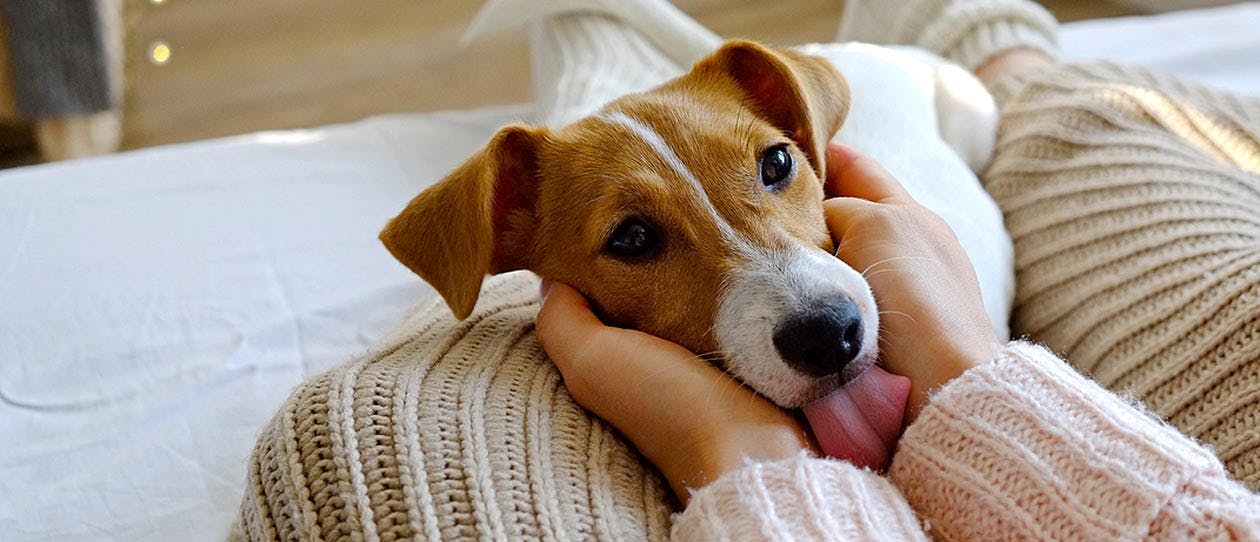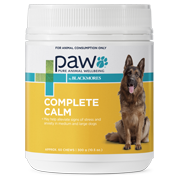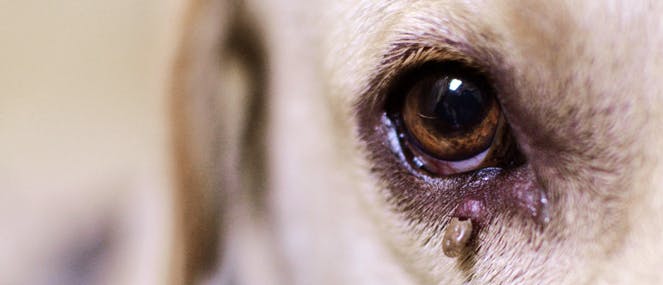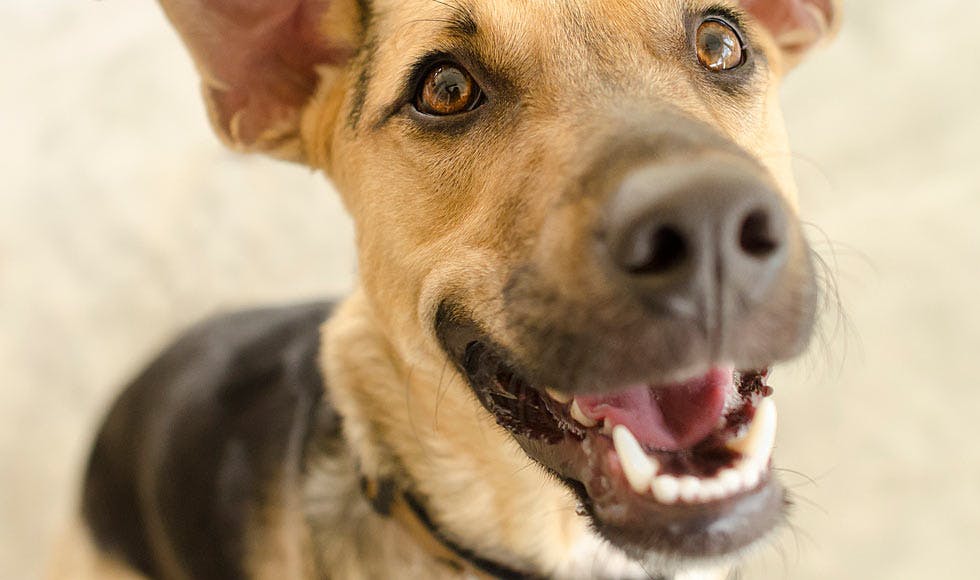
- A Guide To Perfect Your Pet's Health/
- Health and Vitality Products For Your Dog/
- Dog Licking, When Should I Be Concerned?


Understanding why your dog is licking plays a key role in preventing them from doing it: here’s some info about this particular problem that’s good to know.
Why do dogs lick?
There are a range of specific reasons why dogs lick a lot, but veterinarian Trish Santos-Smith says that licking typically falls into one of two categories. “It’s either in response to something medical or physical that they’re experiencing, like a pain, an itch or an irritation, or it’s behavioural,” she says.
“For example, some dogs use licking as a mechanism to calm themselves, while for others it’s a learnt behaviour. They may have started licking their paws due to an itch caused by an allergy and then the licking becomes habitual, so they continue to do it even when the itch has disappeared.”
Some types of licking, including when dogs repeatedly lick their own mouth and lips when food isn’t present, may occur when they’re stressed or fearful. In fact, some research even suggests this kind of licking is a dog’s way of trying to communicate with people who are angry.
The trouble is that regardless of whether it’s for a medical or a habitual reason, licking can cause real problems when your dog overdoes it. “When your dog licks and licks a wound, it can make the wound worse or prevent it from healing properly,” says Dr Santos-Smith. “On the other hand, a dog licking a part of their body for a behavioural or habitual reason can actually cause a skin irritation.”
How to stop a dog from licking
The steps and strategies involved will depend on why your dog is licking and what kind of licking they’re doing in the first place. Here’s how to tackle a few common types of dog licking.
Dog licking paws: While this can be behavioural or habitual, Dr Santos-Smith says the first thing to consider is whether their paws are sore, injured or itchy for some reason. “Along with your dog’s legs and belly, one of the most common places an allergy can occur for them is their paws. And if an itch is what’s causing them to lick their paws excessively, the key to helping them stop is treating the itch and, ultimately, addressing the allergy. Likewise if it’s an infection or injury of some sort. If their paws look sore or redder than usual, ask your vet for advice.”
- Dog licking wound: As well as taking steps to treat the wound, Dr Santos-Smith says that stopping this kind of licking can be as simple as dressing the area. “But when that’s not possible, or if your dog keeps removing the dressing, they may need to wear a cone – or Elizabethan collar as it’s also known – to physically prevent them from reaching the area.”
- Dog licking air: This may occur when something’s stuck to or lodged in the roof of their mouth, but if it only tends to happen in certain situations, it may be a sign that they’re stressed or anxious. If it continues and it worries you, see your vet.
- Dog licking nose: Unless there’s an obvious wound or injury, this one is usually nothing to worry about. Dogs frequently lick their noses to keep them clean, to assist with scent identification or to add moisture, which is vital to their sense of smell.
- Dog licking wall: If you notice your dog doing this above and beyond what can be explained as ‘curious exploration’, it’s worth making an appointment with your vet. Excessive licking of surfaces can be a behavioural issue but it can also be a symptom of another health concern, including gastrointestinal problems
Should you be concerned about a dog licking you?
On paper, dogs licking faces might seem like something to be concerned about, but with 50 per cent of pet parents allowing their dogs to do it, is there anything to worry about if you’re one of them?“Dogs lick people’s faces all the time,” says Dr Santos-Smith. “It’s often a sign of affection but it may also be that dogs like the taste of our sweat.
“There are some infections that we can catch from dogs, including intestinal worms, giardia and salmonella, but it’s rare that they’d be transmitted simply by the odd lick to the face.”
Research backs that up, with a US study finding that dog owners are more likely to ‘catch’ germs from their pets by practising poor hand hygiene than by allowing face licking.
“Still, if it’s a behaviour you’d like your dog to stop doing, the trick is training them not to do it,” says Dr Santos-Smith. “It’s all about positive reinforcement – distract them when they display the behaviour you’re trying to change and reward them whenever they do what you want them to do, instead.”




